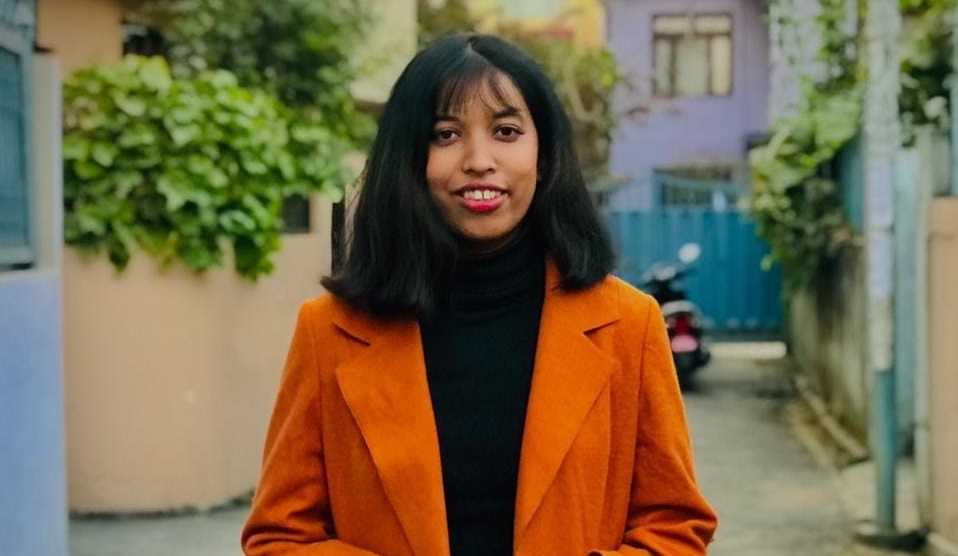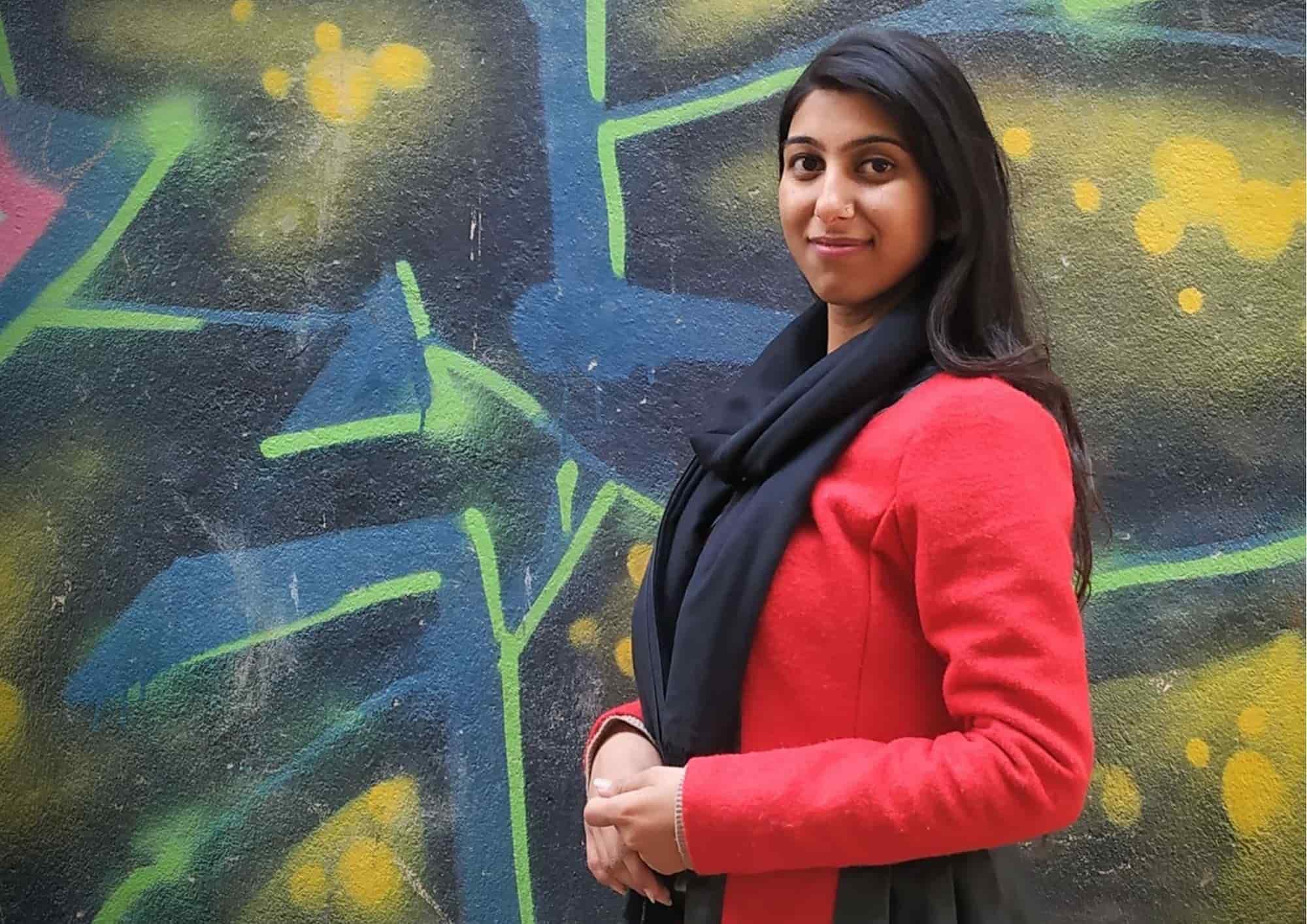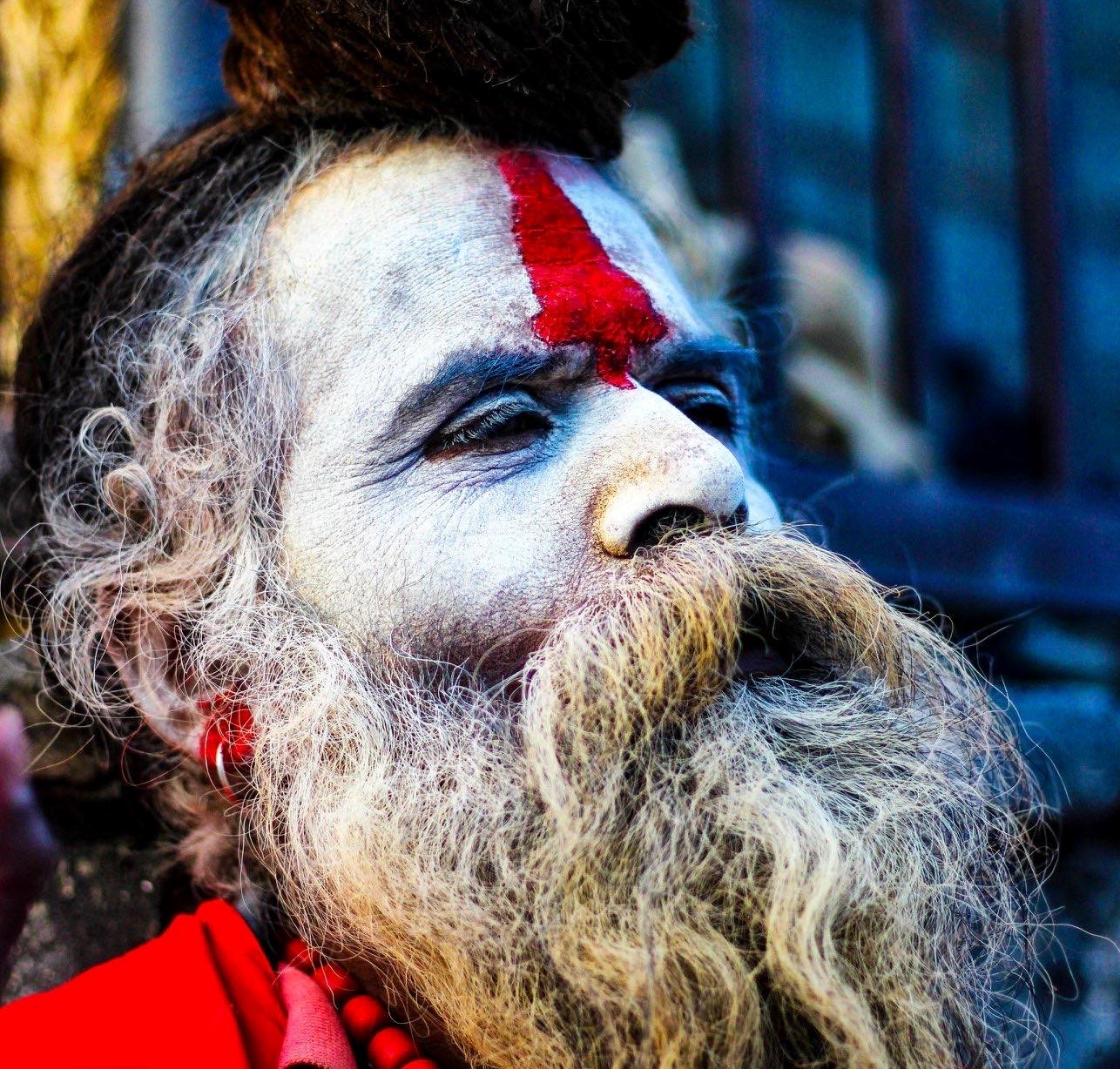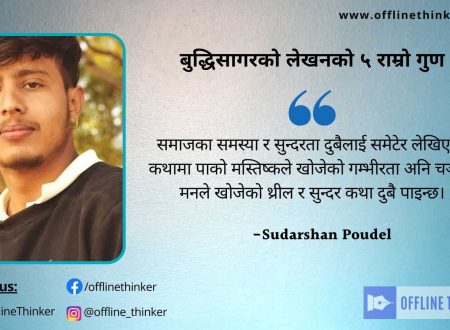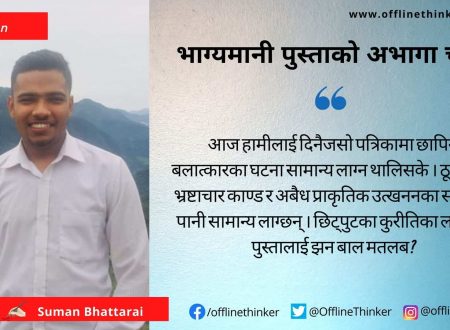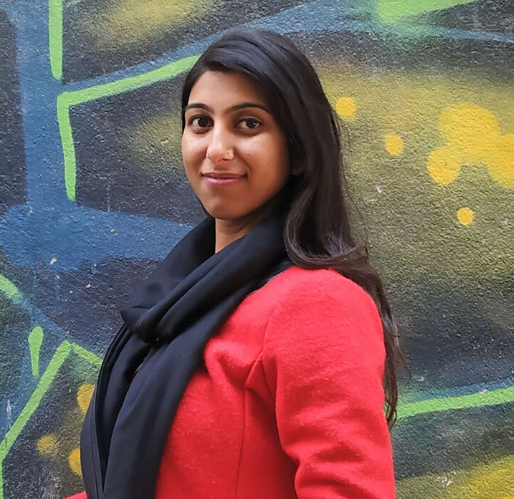I wanted to bring out this issue in words for so long but somehow, my vocabulary stuck as I tried to write. My tongue fumbled when I tried to speak. For me, being a girl from the Madhesi community, facing double standards each day is really challenging. I, representing my entire community, am a victim of double discrimination. Sexism has been a problem for Nepal for many centuries but the other discrimination I have to face head-front each day is cultural racism. Both are atrocious in their own place but their combo can be even more threatening.
I am a girl from Madhesh that belongs to the South-plain region of Nepal. It’s close to the border but still is a beautiful part of Nepal’s geology. We have a unique language known as Maithili. It is the 2nd most spoken language in the country and yes, we share many cultures and traditions with our bordering country ‘India’ but that doesn’t imply I am non-patriotic or an outsider. So, why so much hate towards people of the same motherhood?
“Dhoti”, such a simple term for clothing. Just like any other clothes that we wear it’s a piece of daily wear. It signifies the cultural value but the same term is used to humiliate and disfavor individuals from Terai region. Am I overreacting? No, I am speaking the truth.
People may not be intentionally calling that word to bully. But it sounds harsh. According to the Mehrabian rule, 93% of our total communication is done by non-verbal communication, and out of 93%, 38% of the communication depends upon the paralanguage that is the tone of voice and the rest 55% depends upon gesture and posture. As the tone of voice and gesture is so important, even though the term might not be so disruptive in itself, the inner satire behind it is really negative.
We do not call people from the Hilly region ‘Daura Suruwal’ or ‘Gunyo Cholo’. We don’t hear people calling ‘Oi Bakkhu’ to people from the Himalayan region but enjoy calling people from the Terai region ‘Dhoti’.
I have had friends who kept back-biting about ‘Madhesi people and culture’. As I approach them, they used to hush down their tone and say that they did not mean to offend me in any way. But deep inside they were intentionally poking my identity. Even though the term of ignorance didn’t directly point to me, it was pointing to the Madhesi community and I would be obviously hurt if they speak in that mean tone about my culture and the people of my community.
Believe me, when I say, the person that is selling fruits, vegetables, or any goodies and has a dark skin tone does not need you to call them “Bhaiya” when you are addressing them. Either if you have started with the term Bhaiya, you got to speak either in Maithili, Bhojpuri of Hindi or you can just address them with the usual terms used. Now don’t get me wrong, the meaning behind “Bhaiya” is really sweet but the understatement is not. It’s called reading between the lines. I have heard many people speak in a manner like “Those Bhaiyas do not have a brain. You can treat them however they want.” Those Madhesis are selling Nepalese land to India.” These kinds of sentences offend me to bones. Borders are being protected and our boundaries are safe because each day people from terai are struggling with the outward forces to keep our country safe. The amount of love and respect for the country isn’t even an ounce less by the people from Madhesh. They love and worship the soil as their mother and the food that is being served carved into many dishes is actually their sole effort hence the region is known as the bread-basket of the country.
Now, the next issue which is quite outraging is that people need to understand that we have a different mother tongue rather than the mainstream Nepali language. I know Nepali is a national language but it is not compulsory for everyone to speak with correct pronunciation and grammar. If I am able to deliver my message and understand what the other person is trying to do then that should be enough.
That is basically a key point for the importance of a certain language. But I have always been mocked for the way I pronounce Nepali words. And not just me, even if you watch Nepali tele-serials then you might notice that if there is any character which is introduced from Terai then he would be coloured in black ink in the face and he would try to speak in the distorted way of Nepali. I am glad you put out a Madheshi character but what are you trying to prove by coloring their face black? Isn’t it straight-up racism? If you want to represent a Madhesi character then there are lots of other ways and rubbing ink shouldn’t be one of them because mocking someone of skin tone is not a good act. And why is the character trying so hard to make people laugh by speaking the broken language? Shouldn’t we respect the fact that the Madhesi people are at least trying to speak Nepali even after the language difference.
Also as a Madhesi girl, I have observed that most of the time Madhesi women are excluded from feminist programs and activities. They are also not included in the anti-ethnic discrimination policy.
The number of times I had to explain that I can speak well in Nepali and you do not need to be good enough to start the conversation in Hindi is insane. People have even pointed my culture as uncivilized and backward and that is really unsettling. Until, you belong to my community it’s not right for anyone to be judgmental. The stereotypes towards my community are beyond words.
I agree that it has changed a lot compared to the time of my forefathers but still there is a long way to go where Nepalese society will accept that Madhesis are Nepalese too and we have the equal love, rights and responsibility towards the country. Spread love and positivity beyond geographical and cultural differences. We are all children of motherland Nepal and should be prioritizing the development of our country rather than occupying ourselves with racial hate.
Read more from Sneha Jha:
Follow Offline Thinker on Facebook, Twitter, and Instagram. You can send us your writings at connect.offlinethinker@gmail.com


